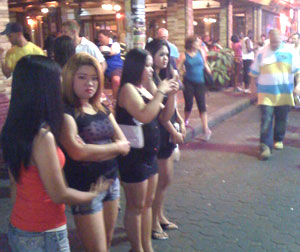
Nationwide, human trafficking is more of a problem than most people think, according to investigators and officials.
By Andrew Firestone
The Massachusetts House of Representatives voted on June 1 to implement a law against human trafficking, citing an increased awareness of possible activity in the Commonwealth. The legislation was supported by Representatives Denise Provost and Carl Sciortino of Somerville, who both said that it was about time.
“There are very real issues of human trafficking both for forced labor purposes and for sexual exploitation of minors and those are barbaric and unacceptable,” said Sciortino. “There’s a network of traffickers between Massachusetts, Connecticut, Rhode Island and New York who are essentially bringing people into the country as sex slaves and they are able to shift them around to different cities once the police identify them as sex workers so they are able to avoid being caught in any particular town,” he said.
“There needs to be a law like this because the absence of a law is exploited by those who exploit other people,” said Provost, who noted a confirmed outpost of a New York-based sex-slave ring had been exposed in Pioneer Valley to the west. About the timing of the legislation, she said the delay had been because “there may have been some thought that it didn’t happen here.”
“It wouldn’t be the first time that there was a widespread belief in Massachusetts exceptionalism,” she said.
In Somerville, the Boston Police Department’s Human Trafficking unit has been brought in twice in the last two years, said Deputy Paul Upton of the SPD. “It’s probably like an iceberg. There’s probably a lot more below the surface than on the surface,” he said.
The most recent incident occurred in Davis Square, which was cited for prostitution last August at the Fu Shen Spa at 258 Elm Street. Xiao Jing Gu of Malden, 25, was arrested for offering sexual services for an additional fee, along with Lian Hong Zhao, 45, of New York City. Undercover officers from the SPD Detective Bureau worked with the BPD human trafficking unit in cracking down on the establishment. The police report indicates repeated attempts by the alleged prostitute to entice the undercover officers. According to Upton, the case may still be open.
Upton said that the department was dedicated to helping those who might be under coercion or duress. “If the truth is that the person that we’ve charged either shouldn’t have been charged, or if they did commit a crime but they are also a victim of a more serious crime, we’re going to work with that person,” he said, adding that most times it was difficult to get through to possible sex workers due to their fear.
“Young women who are brought into prostitution are typically lured into it between the ages of 11 and 13,” said Provost, “and by the time they are 15 or 16 feel old and tired and that life has nothing more to offer them. They are also vulnerable to venereal disease.”
“They’re drugged. It’s not much of a life,” she said.
The new law is designed to combat the regional problem, while protecting those who might be exploited, such as those under the age of 18. It was this amendment that might have stymied the bill, as some law enforcement officials had objections to the age amendment, said Provost.
Upton said Somerville policy was to fight against exploitation regardless of immigration status or criminal activity. “If someone is reaching out for help, if that suspect is also in reality a victim, we’re going to help the victim to get out of the situation that they’re in,” he said.












Reader Comments